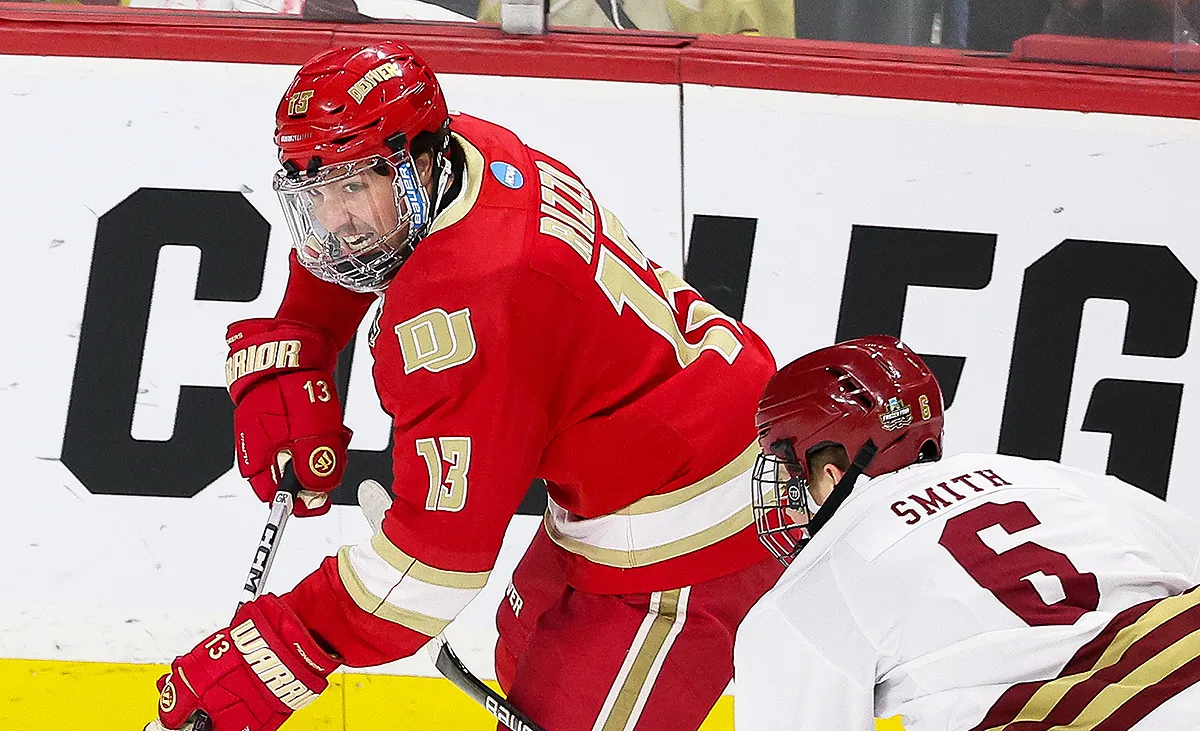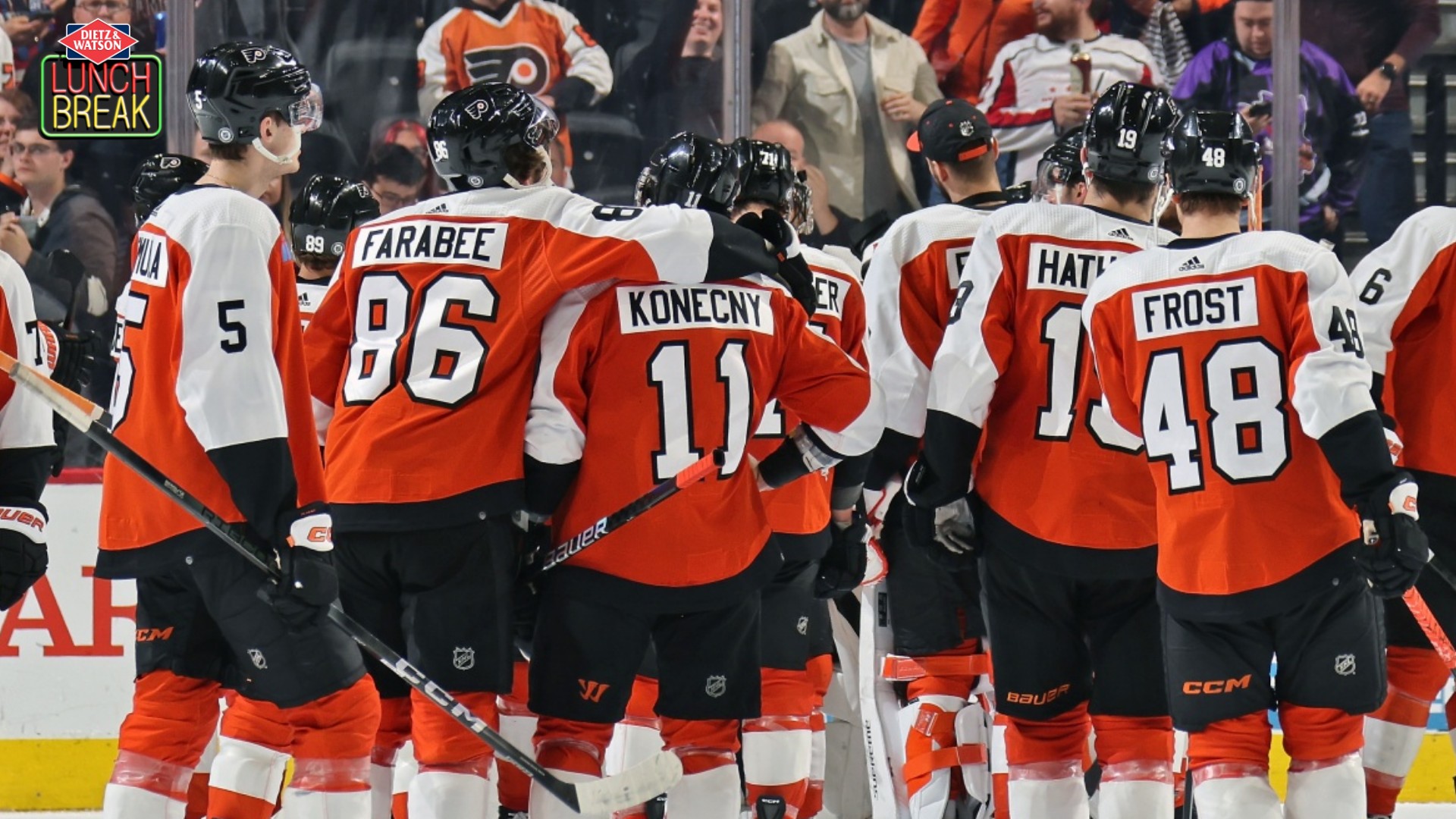
This time last offseason, Flyers general manager Ron Hextall had just began organizing his game plan for the summer: Locking up young talent and focusing on the draft.
Sean Couturier and Jake Voracek were signed to long-term contracts post draft, but it's safe to say the groundwork for those extensions were laid well ahead of time. Within a 72-hour period, the Flyers inked Couturier (six years) and Voracek (eight years). After signing Voracek, Hextall said he wasn't in a rush to extend Brayden Schenn, who was entering the final season of a two-year contract he signed with the Flyers in 2014.
"[It's] not that we wouldn't like to get him signed, but probably [want to] get him another year to see where things flush out," Hextall said last July.
"I don't anticipate signing Brayden, which never means that you're not going to but it's not something we'll actively pursue. We'll wait and see how the year goes and probably talk at some point during the year or next summer."
Despite making the playoffs this season, Hextall is in a similar situation this summer he was last. The draft is still the top priority, but there are a few expiring contracts. Among them is that of Schenn, who's set to become a restricted free agent. Schenn is one of five RFAs the Flyers have, but the only one with priority for a long-term extension.
All signs point toward Schenn penning his name on an extension at some point this summer, so what could a long-term deal for Schenn look like? Let's break it down.
What they've said
Back in February, Schenn admitted contract talk was "always coming up" and "it's all part of the business." Standard player talk during a postseason run, but he did venture this: "You got to play for a team that wants you. Hopefully, they want me after this year."
NHL
At his end-of-the-season media availability at Flyers Skate Zone in Voorhees, New Jersey, Schenn again hinted he wants to remain in Philadelphia long term as long as the team wants him here too. He also said the two sides didn't talk contract during the season.
"I believe in this team, I believe in the guys in the locker room," he said. "We'll see what happens, see how it plays out. I've been here, jeez, five years now. If they want to go long term with me, obviously I want to be a part of this team."
Hextall said a long-term contract for Schenn is "not going to be the first thing we get done" and that "those things take time," but he did say signing Schenn would get done. And as has been standard in the Hextall era, the general manager refused to tip his hat.
"There's a lot of factors that come into play with term, money, cap," he said. "So I can't make a blanket comment right now and say that we'll sign Brayden to a long-term deal. I would certainly be open to it, but I have no idea right now where that's headed."
What he's done
One of the reasons Hextall was not in a rush to extend Schenn last offseason was he wanted to see the forward take another step in his development, showing more consistency.
It was a smart bet for Hextall to make despite it costing the Flyers more money in the end. At the time, Schenn was still an inconsistent player who was tough to read. There were too many times during a season he'd disappear to be comfortable handing out a long-term deal to him, but that all changed this past season, especially since the turn of the calendar year.
Schenn continued to see an uptick in scoring, finishing with a career-high 59 points. From CSN's John Boruk: Schenn is one of five NHLers to increase his scoring in each season since 2010-11, joining Casey Cizikas, Mika Zibanejad, Roman Josi and Marcus Foligno. He finished the 2015-16 campaign with a career-high 26 goals, including 11 power-play markers, and was about a point-per-game player from Jan. 1 on — 44 points in 46 games, or 0.96 ppg.
How he fits
A natural center, Schenn found a comfort level playing on the wing under head coach Dave Hakstol. A major part of that was Hakstol's commitment of not yanking Schenn around. In 2014-15 under Craig Berube, Schenn was moved up and down the lineup and played both center and wing.
With the Flyers' surplus of centers, Schenn had to learn how to play wing on the fly, but the problem was he was at wing for a few games and then moved right back to center the next. There was no consistency as to what the Flyers wanted from him, which made it more difficult for him to find consistency from himself. Whereas with Hakstol, Schenn spent this season on the wing, only playing center when absolutely needed.
With that, he found consistency. Going forward, Schenn figures to be a top-six forward for the orange and black and a cog on the top power-play unit. Seeing how he's trended upward in point production each of the last five seasons, it's safe to say he's not done yet. More so, the 24-year-old has found chemistry with both of the Flyers' top centers, Claude Giroux and Couturier. He's now much more comfortable on the wing, which helps the Flyers.
Schenn should be a key piece in the top-six looking ahead.
Verdict
We can start by looking at the long-term contracts Hextall has done as general manager — there have only been two thus far, Voracek and Couturier. One was at market value (Voracek) and the other was more so based off projections (Couturier).
Voracek was coming off an 81-point season, which dictated his extension. Voracek's $8.25 million cap hit put him at market value with what similar players were getting.
"I think when neither side is necessarily thrilled with the deal, you probably make a fair deal," Hextall said last July of Voracek's contract.
As with Couturier, Hextall was betting on the center's offensive game eventually coming around, which it did this season, and already being comfortable with his 200-foot game. It was the kind of contract that in a couple years we'll look back as a team-friendly deal.
With Schenn, it's going to be a mixture of market value and projection.
As a two-time 20-goal scorer, Schenn will demand more than Couturier's $4.33 million annual average value but nowhere close to Voracek's $8.25 million. At 24, he still is an unfinished product. (So, too, is Couturier, who is 23.) This year, Schenn finished with 26 goals, even with a quiet first three months of the season. If he plays at the level he sustained over the final three-plus months, he could very well become a 30-plus goal scorer but he's not there yet.
Schenn is turning 25 in August and this isn't going to be his big contract — the next one will be. He'll get a fair raise from his $2.5 million AAV on his previous contract. So we're looking at a three or four-year contract in the neighborhood of $5 million per year.
That gives Schenn the ability to test unrestricted free agency while he's still in his prime and gives the Flyers a larger sample size before handing out top dollar.
Final guess? Three years, $15.75 million with a $5.25 million AAV.


